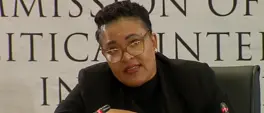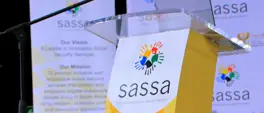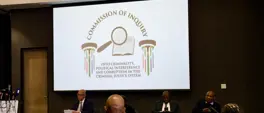Former board chairs say SITA beset with a poor working culture
Lindsay Dentlinger
8 May 2025 | 6:05In an unusual move, Parliament’s Standing Committee on Public Accounts on Wednesday called in directors who no longer serve the company to explain the disclaimed audit opinion for the 2024/25 financial year and the myriad findings of irregularities.
CAPE TOWN - Former board chairpersons of the State Information Technology Agency (SITA) have aired the dirty laundry of an institution they said is beset by a poor working culture that frustrates employees, and results in high turnover of skilled professionals.
In an unusual move, Parliament’s Standing Committee on Public Accounts (SCOPA) on Wednesday called in directors who no longer serve the company to explain the disclaimed audit opinion for the 2024/25 financial year and the myriad findings of irregularities.
ALSO READ: SITA tells SCOPA it's being unfairly blamed by some govt depts for poor service
The meeting follows months of bad publicity lumped on the agency for the impact their IT services are said to be having on service delivery in the civil service, particularly Home Affairs.
With five acting managing directors in as many years, SITA has also had its fair share of boards that have been hired and fired by past and present communications ministers.
Former audit committee chairperson Nolitha Pietersen didn’t mince her words in explaining the low staff morale, saying skills are not the problem.
“People don’t want to work if they’re used to an environment where people work, and they have a sense of urgency. So, some would get frustrated.”
Meanwhile, former board chairperson Kiruben Pillay said SITA is simply not matching up to industry standards and keeping abreast of new developments.
“Customers are going to other places because it’s a faster horse they can get.”
Another former chairperson, Makano Mosidi, said SITA needs to review its governance structures.
“You can’t have old, old policies, managing SITA. Currently you have this machine that must be nibble but is incubated into a very heavily governed, and very rigid environment.”
She said SITA was losing young talent because certain higher positions they should be aspiring towards are only for a fixed term.
Get the whole picture 💡
Take a look at the topic timeline for all related articles.















